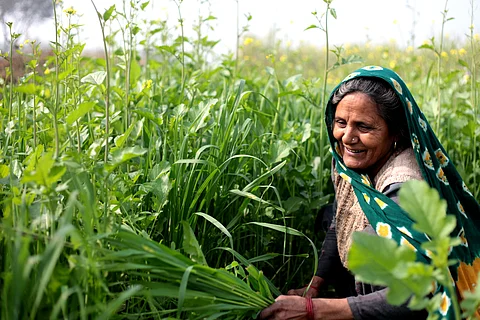

A recent report calls for nutrition investments in the agri-food sector which it argues, can reduce gender inequalities, increase productivity and enhance business resilience.
Global Alliance for Improved Nutrition (GAIN), a Switzerland-based foundation, launched the report titled The Case for Investment in Nutritious Foods Value Chains: An Opportunity for Gender Impact.
The report calls for increased funding to nutritious foods value chains, in particular small and medium enterprises (SMEs), which critically lack access to financing in emerging markets.
According to the Food and Agriculture Organization (FAO), globally, women comprise 38 per cent of all agri-food workers.
However, the share of women in the agri-food sector is much higher in the less privileged parts of the world.
In sub-Saharan Africa, this share is 66 per cent and in the South Asia region of which India is a part of, the percentage is recorded at 71 per cent.
Despite the high rate of participation, women in agri-food sectors continue to face a plethora of barriers such as — lower access to key assets, resources and services, including access to land, inputs, finance, extension services and technology.
Discriminatory social norms and legal frameworks also impede women from accessing financial independence while making them vulnerable to risky employment conditions and gender-based violence.
According to the report, to achieve food security, the nutrition aspect of food production and consumption cannot be overlooked.
It stated that nutrition investments are an opportunity for investors to strengthen food value chains. There is both a strong business case and a viable impact case to invest in nutritious food systems with a gender lens.
From a commercial perspective, nutrition investments can improve supplier productivity, business resilience and create a more productive and loyal workforce by attracting and retaining women. Also, this way, agribusinesses can benefit from increased diversity, both at the management and employee level.
According to the FAO, reducing gender inequalities by improving women’s access to productive resources and services could increase women’s farm yields by 20 per cent - 30 per cent.
Talking of impact, nutrition investments can contribute to global food security and nutrition, to women’s economic empowerment, and to climate mitigation and adaptation.
According to FAO, women’s empowerment is linked to improved household diets and in particular improved child nutrition.
Plugging the gender gap in farm productivity and the wage gap in agri-food-system employment would increase global gross domestic product (GDP) by 1 per cent or nearly $1 trillion, according to The Status Of Women In Agri-food Systems report released last year.
The GAIN’s report highlights six nutritious food value chains in three geographies from a gender perspective — cashew nuts and poultry in Sub-Saharan Africa, aquaculture and quinoa in Latin America and tomatoes and dairy in South Asia.
Africa is the world’s largest producer of raw cashew nuts. However, only 10 per cent of the processing of these cashews in Sub-Saharan Africa is done locally. Women play a dominant role in the shelling and sorting of cashews, which is done manually.
There is an opportunity to invest in increased processing facilities to ensure value addition is done locally.
South Asia has a high tomato production, with India being the world’s second largest producer.
Women play a key role in tomato cultivation and processing but have limited control over resources.
Women in South Asia tend to have limited access to and control over resources such as credit, and new agricultural technologies, which are largely controlled by men.
The ‘2X criteria’, which were recently updated in June 2024, provides a clear and standardised framework for investing in companies with a gender lens.
The 2X Criteria is the global industry standard for assessing and structuring investments that provide women with leadership opportunities, quality employment, finance, enterprise support, and products and services that enhance economic participation and access.
In more male-dominated value chains where women hold a large percentage of informal jobs, gender-lens investments can help improve the inclusion and treatment of women in the value chain such as aquaculture.
Across value chains, gender-lens investments could help address the lack of representation of women in leadership positions and support women entrepreneurship and ownership.
Several companies in the six value chains show evidence of gender impact or gender impact potential, says the report.